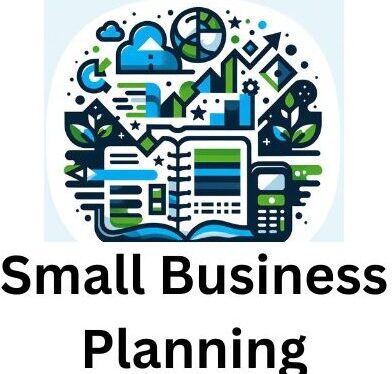
I’m going to kick things off by walking you through the purpose and importance of a business plan. Think of it as a roadmap for your business’s journey, outlining the route from where you are now to where you want to be.
Now what makes up a solid business plan? It isn’t just about financial projections or marketing strategies. It’s the whole toolkit: a clear description of your business model, analysis of your industry, organizational structure, product or service offerings, and marketing plans, among others. Each piece plays a crucial role in your business’s potential success.
You’re going to find out about aligning your business goals with your plan, which is crucial. This isn’t just about setting targets, but also about creating an actionable path to achieve them. Your business plan will serve as a benchmark to measure your progress and adjust your direction when necessary.
The real benefit comes from the insight you’ll gain from this process. It can reveal potential challenges, opportunities, and unforeseen variables. That’s what makes the business planning phase invaluable. It forces you to think through your ideas and refine them before you take the plunge into the market.
Market Analysis and Strategy: Identifying Your Niche
You’re going to find out about the critical step of conducting market research. It’s not just about knowing your product but understanding who’s going to use it and who else is offering something similar. You’ll want to start by defining your target market. This isn’t just about stats and numbers; it’s about getting into the minds of your future customers.
Once you’ve nailed down who you’re selling to, your next step is to understand their needs intimately. Why would they come to you instead of someone else? What specific problem does your product or service solve for them? If you want to stand out, choose something that resonates with your audience and focuses on delivering that.
A market isn’t static, so your competitive strategy should adapt with it. Use the insights you’ve gathered to identify how you can outmaneuver your competition. Maybe it’s by offering superior customer service, a unique product feature, or a pricing strategy they can’t match. Remember, it’s the differences that make a product or service stand out. So, I’ll encourage you to hone in on what makes you different.
Don’t worry too much about getting everything perfect on the first try. Your market analysis and strategy are parts of your business plan that can always be refined. What’s important is setting a solid foundation to guide your decisions and provide a clear path for growth, because just don’t focus too much on perfection. Aim for a strategy that’s flexible and resilient in the face of change.
Mapping Out Your Operations: From Vision to Reality
So you’ve got your business idea pinned down and you understand the market landscape. Now, I’m going to walk you through how to transform these plans into actions. This isn’t just about the high-level vision; it’s also about the nuts and bolts that make your business work on a day-to-day basis.
First, let’s hash out the operational structure. You’re going to find out about organizing your team, figuring out the supply chain, and determining what kind of facilities and equipment you’ll need. Choose something that resonates with you, because your operation should reflect the unique character of your business.
Are timelines giving you a headache? Don’t worry too much about getting them perfect from the get-go. However, you should detail the major milestones you expect to hit. This will help you visualize the growth trajectory of your business.
Now, onto the money aspect. I’m here to help you with creating a budget that outlines how much funding you’ll need and where it will come from. Also, financial projections for the next few years are crucial. They show not only your potential but also help in managing cash flow — which, believe me, is a big deal.
Remember, the operations plan should mesh seamlessly with the financial components of your business plan. This cohesion ensures that when you’re communicating your business plan, every piece is accounted for.
Perfecting Your Pitch: Communicating Your Business Plan Effectively
I’m going to let you in on a final but crucial piece of the business plan puzzle: selling your vision. This isn’t just about having a solid plan on paper; it’s also about how you communicate that plan to others. Whether you’re pitching to investors, lenders, partners, or even potential employees, the way you present your business plan can make or break their confidence in your vision.
Start with an executive summary that packs a punch. In my opinion, a strong executive summary sets the tone for the rest of your business plan. It should encapsulate the essence of your vision, key financials, and what sets your business apart. This isn’t the place to skimp on quality—make your first impression count.
Remember, different stakeholders may have different interests. If you’re presenting to investors, they’re going to be most concerned with the financials and growth potential. When you talk to potential partners, you’ll want to emphasize strategic alignments and mutual benefits. Choose something that resonates with each audience when you explain your business plan.
Design and presentation might seem like the cherry on top, but guess what? They are. A well-organized, visually appealing business plan not only holds attention but also demonstrates professionalism and attention to detail. Use visuals like charts to tell the financial story of your business potential.
Finally, be ready to adapt. Your first business plan doesn’t need to be your last. As your business evolves, so should your plan. Keep it dynamic; update it as you reach new milestones, learn more about your market, or pivot your strategies. This shows that your business is growing and adapting, a sign of resilience and foresight that can only inspire confidence.
I really hope that you take these insights and use them to polish your business plan. With a compelling plan that’s beautifully presented and deftly communicated, you’ll be all set to turn those ambitious dreams into concrete reality. Thanks for taking this journey with me, and I’m eager to see where your business plan takes you!
